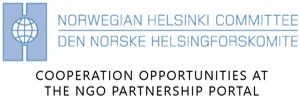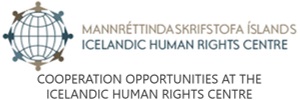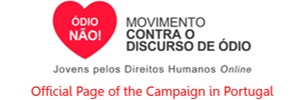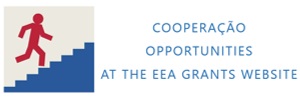About the Programme
About the Programme
The Cidadania Ativa Programme is an instrument that supports Non-Governmental Organizations (NGOs), in force between 2013 and 2016 and funded by the Financial Mechanism of the European Economic Area (EEA Grants). Its management is entrusted to the Calouste Gulbenkian Foundation, selected through public tender launched in 2012.
The total Programme amount is now € 8.7 million, having been substantially increased in March 2014 by the Donor Countries of the Financial Mechanism of the European Economic Area (EEA): Norway, Iceland and Liechtenstein. Its implementation period extends until April 2016.
Access to the Programme’s support is possible only through calls for applications, with rigorous access rules and evaluation criteria, detailed on this website, being the selection of projects made on the basis of the relative merit of applications and taking into account the pre-defined allocation for each call. The standards in accessing funding are in accordance with the rules defined for the management of comparable programmes in the 16 EEA beneficiary countries.
[accordion]
[accordion-tab title=”Eligible Applicants”]
Portuguese NGOs, i.e. non-profit, voluntary, private legal entities, may apply if they:
- are legally established;
- pursue the general interest or common good;
- are independent from local, regional or national authorities and other public or socio-professional or business organizations;
- are not party organisations or political parties;
- are not religious organisations.
Each NGO may only apply for one project per year in each field of intervention.
In order to apply for ‘large projects’ it is also necessary that the NGO has been created and registered for more than one year before the date of application. In those cases, it is also required that a partnership is established with other entities for the implementation of the project. The following rules apply:
- the leader of a partnership must be a Portuguese NGO;
- an entity can only be selected for three projects as leader and three partnership projects as a partner;
- each partnership may include a maximum of four entities;
- public and private entities (other than NGOs) may be included in partnerships, but are not eligible for support, except under Field of Intervention D, where costs incurred by the partner entities are eligible even if they are not NGOs, provided they are legally created and carry out their activities in Portugal or the Donor Countries.
[/accordion-tab]
[accordion-tab title=”Fields of Intervention”]
Applications to the Programme’s calls must designate one specific “Field of Intervention”, and it should be noted that the Programme received a significant amount of new financial resources in 2014 and with those additional resources an entirely new field of intervention was created:
A. Participation of NGOs in the implementation of public policy design and instruments at the local, regional and national levels to increase the involvement of NGOs in the political and decision-making processes and the implementation of public policies at the local, regional and national levels;
- 13% of available funds overall (980,000 euro), of which, about 348,000 euro are allocated to a call for large projects in 2014;
B. Active role in Human Rights, minorities and anti-discrimination to promote issues related to the defence of democratic values, including, namely, human rights, gender violence, intercultural dialogue and the fight against discrimination;
- 26% of available funds overall (1,960,000 euro), of which, about 818,000 euro are allocated to calls for large and small projects in 2014;
C. Effectiveness of NGO action to strengthen the effectiveness of NGO action, particularly through training, organizational innovation and management and training of leaders, staff and volunteers;
- 26% of available funds overall (1,960,000 euro), of which, about 752,000 euro are allocated to calls for large and small projects in 2014;
D. Supporting youth employability and inclusion (new field of intervention since march 2014) for projects directed exclusively or mainly to young people (unemployed youth, youth out of school and youth at risk) under the age of 30 years;
- 34% of available funds overall (2,553,000 euro), allocated to a call for large projects in 2014.
The Programme also supports bilateral cooperation initiatives with EEA Donor Countries – Norway, Iceland and Liechtenstein. Submission of applications for the implementation of these initiatives falls under its specific call for applications, and other applications which may be submitted to the Programme have no bearing on its evaluation.
It should be noted, however, that an application within the scope of one of the fields of intervention may benefit, when being evaluated, if it is associated to an application for a bilateral cooperation initiative..
[/accordion-tab]
[accordion-tab title=”Eligible Projects and Activities”]
It should be pointed out that the rules of the Programme were changed following the approval of the additional allocation received from the Donor Countries and during the preparation of the 2014 calls for applications. Therefore, the 2014 calls are governed by the version of the Rules of the Programme and Promoter’s Manual posted on this site in March 2014.
For the purpose of the 2014 calls, there are two types of projects to be considered:
Large projects
- total cost supported by NGOs and other eligible entities between 27,500 and 138,500 euro;
- maximum duration of 18 months;
- mandatory creation of formal partnership (for those projects selected for support) between the promoter and up to three entities for the implementation of the project.
Small projects
- with a total cost supported by NGOs and other eligible entities between 10,000 and 27,500 euro;
- maximum duration of 12 months;
- creation of partnership for project implementation not mandatory, but possible and encouraged.
Eligible activities under the Programme include:
- promotion of citizen participation in the processes of policy design and decision at local, regional and national levels;
- awareness-raising activities;
- promotion of dialogue and cooperation between NGOs and public bodies;
- promotion of the integration of minorities or groups at risk in society;
- strengthening of the capacity and effectiveness of NGOs;
- fostering the creation of NGO networks and platforms;
- training and information activities;
- promotion of local social support services;
- activities that raise awareness on public policies, watchdog and monitoring actions;
- actions fostering employability and job creation for young people.
[/accordion-tab]
[accordion-tab title=”Grant Mechanism”]
NGOs can apply to Programme grants through open calls, these having rigorous access rules and evaluation criteria.
Applications are first reviewed regarding their admissibility (the promoter’s and the project’s eligibility, submission of all documentation required), and then assessed on their merits.
On the assessment of applications within the scope of the 2014 calls:
- The evaluation shall be conducted by experts, independent evaluators invited by the Calouste Gulbenkian Foundation;
- applications are evaluated according to their relative merit, those with the highest scores being selected within the predefined limits of appropriations, according to field of intervention and project size (large/small).
- the selection of projects is carried out by a Selection Committee, with the final decision being made by the Foundation’s Board of Trustees;
- the selected candidates will be invited to submit the information necessary for contracting the approved grant, and, should there be the need, to specify some aspects of their applications which might require further detail;
- (large projects only) the chosen projects will be initiated as soon as this process is complete; however, it should be noted that applications regarding calls for large projects considered of high merit but which cannot be granted support under the call because of insufficient appropriation might join a reserve list, where they will still have a chance of being supported at a later stage.
[/accordion-tab]
[/accordion]
 |
 |
 |
 |

